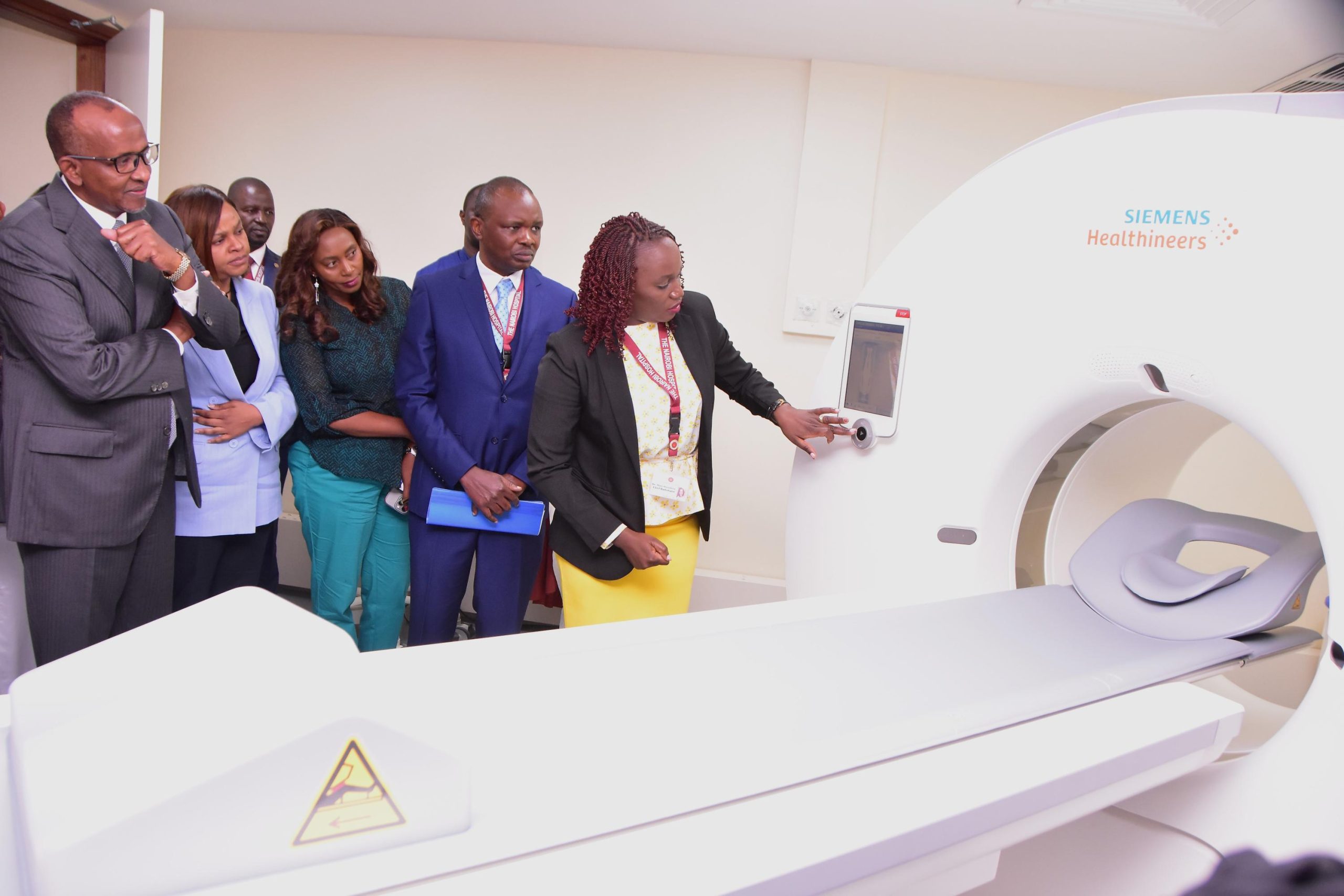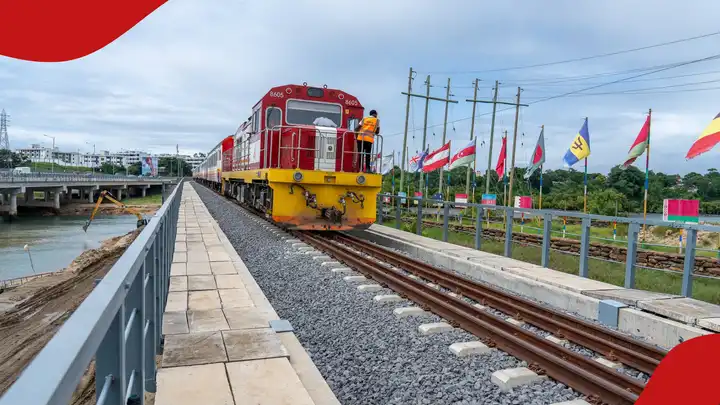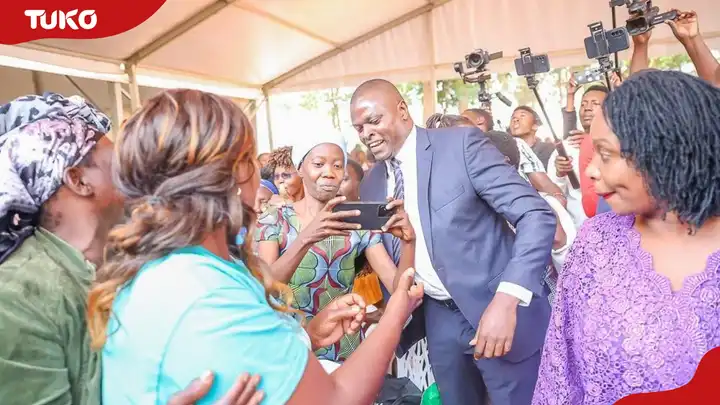The Nairobi Hospital has officially unveiled a state-of-the-art AI-powered CT scanner as part of a strategic initiative to modernise diagnostic services and tackle the growing burden of Non-Communicable Diseases (NCDs) in Kenya.
The Siemens SOMATOM Drive 256-slice CT scanner was launched during a high-level ceremony presided over by Health Cabinet Secretary (CS) Aden Duale on Sunday.
The scanner was described as a transformative tool that would enhance early diagnosis, speed of care, and treatment precision for critical conditions such as cancer, cardiovascular disease, and neurological disorders.
“This is more than a machine — it is a life-saving innovation,” Duale said during his keynote address.
The scanner was officially unveiled in a ribbon-cutting ceremony, followed by a demonstration of its functionalities by the hospital’s Chief Radiologist, as the CS also toured the facility’s cardiac catheterisation lab.
The launch event, held at the hospital’s premises, also featured the signing of a collaboration framework between the Nairobi Hospital and the newly formed Social Health Authority (SHA), marking a public-private partnership aimed at expanding access to high-quality diagnostic services.
“The scanner reaffirms that world-class care can be delivered right here in Kenya. It’s a bold stride in reducing our dependence on medical tourism and saving the 11,000 Kenyans who seek treatment abroad each year,” Duale stated.
The CS emphasised the scanner’s alignment with Kenya’s Universal Health Coverage (UHC) agenda and praised the hospital’s commitment to providing subsidized oncology and renal services to SHA beneficiaries.
“Let this be a model for collaboration, as private institutions must join hands with public systems to ease the cost of care and restore dignity to every Kenyan household,” he urged.
Duale, at the same time, affirmed the government’s commitment to ending perennial strikes in the health sector, noting that the 2025/26 budget includes allocations to clear all pending dues owed to healthcare workers.
The Siemens scanner, the first of its kind in East Africa, features dual-source and AI-assisted technology, which delivers ultra-fast, high-resolution imaging while minimising radiation exposure and the need for contrast agents.
Applications include pediatric, trauma, cardiac, orthopedic, oncological, and neurological imaging.
According to Dr Barcley Onyambu, Chairperson of the Board of Management at The Nairobi Hospital, the investment symbolises more than technological advancement.
“It is a reaffirmation of our purpose to lead with compassion and excellence,” Dr Onyambu said.
“This machine isn’t just hardware. It represents our determination to bring global standards to Kenyan patients and enhance care anchored in dignity,” he added.
Concurrently, the hospital’s Chief Executive Officer (CEO) Felix Osano noted that the new CT scanner complements other recent upgrades in radiology and diagnostics.
“We are reducing waiting time, improving accuracy, and centering care around the patient,” maintained Osano.
“For doctors, it improves planning. For patients, it delivers quicker answers. And for the system, it means efficiency and cost-saving,” highlighted the CEO.
In a bid to increase uptake and accessibility, The Nairobi Hospital announced a 10 percent discount on all CT scan services for one month, from June 15 to July 14, 2025.
Meanwhile, SHA CEO Dr Mercy Mwangangi and The Nairobi Hospital CEO signed a collaboration framework aimed at enabling SHA-covered patients to access advanced diagnostic and treatment services at the facility.
The SHA agreement includes provisions for fully subsidized oncology care and renal treatment services, including post-transplant care, for qualifying patients.
The Nairobi Hospital is ISO-certified and has received international recognition for quality management and sustainability.
It continues to pursue Joint Commission International (JCI) accreditation as part of its broader goal to become a continental benchmark in healthcare delivery.
With this launch, Kenya inches closer to achieving not only world-class diagnostic care but also a more equitable, inclusive healthcare system.
by KNA













